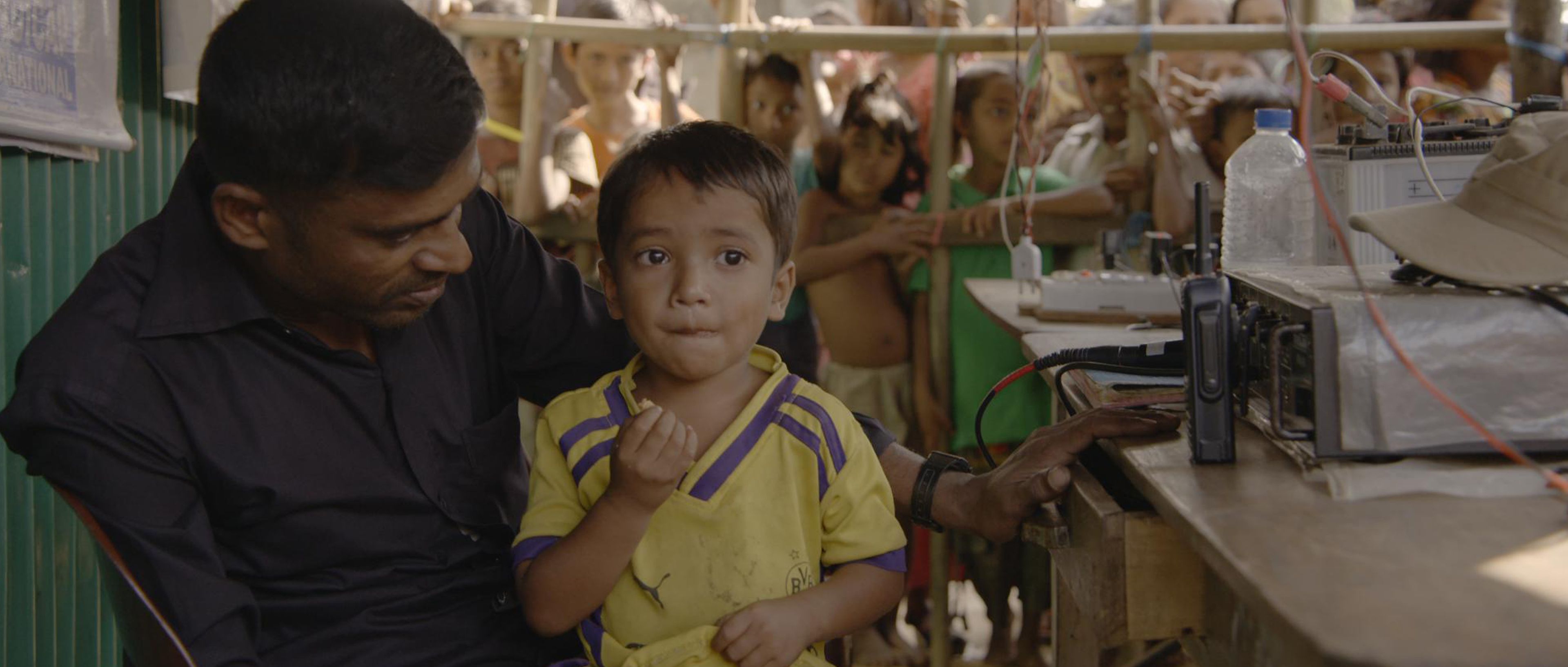A beacon of hope in a refugee camp
From his small ramshackle hut, and armed only with a microphone, he has taken it upon himself to try and reunite the thousands of Rohingya families who have been torn apart by violence and ethnic cleansing in Myanmar. However, in finding lost family members and bringing them back together, he is not just helping them. He is also finding peace for himself.
"If they lose a child, it is like a double persecution."
Kamal’s work is funded by the United Nations High Commissioner for Refugees, recipient of the Nobel Peace Prize in 1954 and 1981.
UNHCR
The Office of the United Nations High Commissioner for Refugees (UNHCR) was awarded the Nobel Peace Prize for promoting the fundamental rights of refugees.
In 1981, when the UNHCR received the Peace Prize for the second time, the refugee problem was greater than ever. At the time, the developing countries were suffering the most, especially the countries of Africa. The UNHCR was responsible for approximately half of the world’s ten million refugees, most of whom were found in the African countries of Cameroon, Nigeria, Somalia, Sudan, Tanzania and Zaire.
"The Office of the United Nations High Commissioner for Refugees is a bridge linking the world community conceived as a community of states and the world community conceived as a community of men and women. We have a duty to the refugees, and this is a duty to ourselves and the very basis of our own existence." - Jon Sanness, Presentation Speech, 11 December 1981.
The videos are available all over the world, apart from in Australia, New Zealand and India.
All media inquiries about this collaboration/films, or to the Nobel Foundation, Nobel Media and Nobel Prize Museum, please contact:
- Rebecka Oxelström, Head of Press
+46 734 12 66 75
rebecka.oxelstrom@nobelprize.org
Share:
